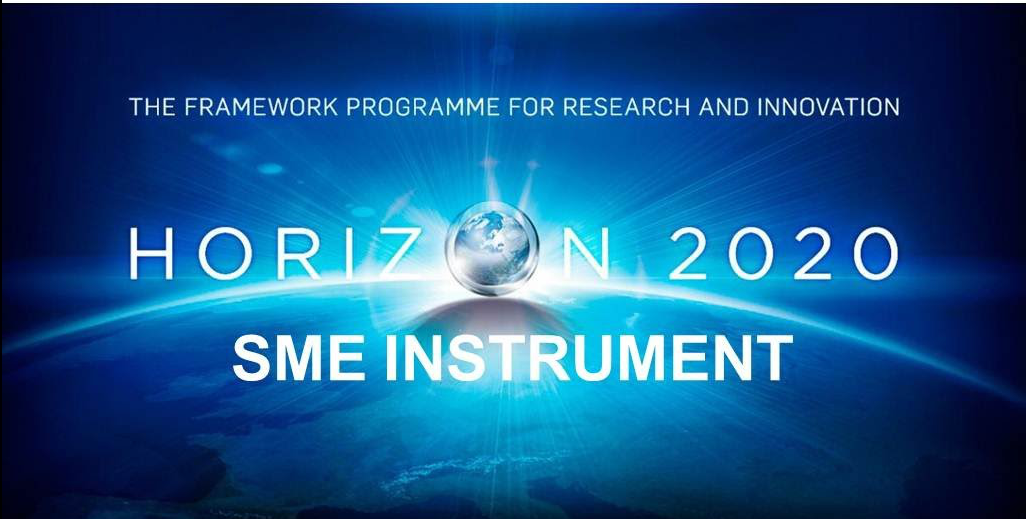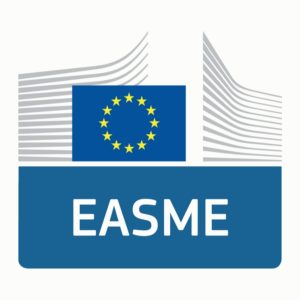Lausanne, 9 March 2020
The SiC inspection project has received funding from the European Union’s Horizon 2020 research and innovation programme under grant agreement No 953549.
Scientific Visual has been awarded the European Commission grant of €2.4 million under the EU’s research and innovation program EIC accelerator Horizon 2020 . According to the EU Executive Agency for Small and Medium-sized Enterprises (EASME), there were 1849 proposals submitted for the H2020 EIC Accelerator in January 2020 cut-off and only 2.3% of the projects were proposed for funding.
To keep competitive, industrial crystal manufacturers need to control the quality of produced crystals and detect its internal flaws, such as bubbles, cracks, and inclusions.
The current approach to the crystal processing is based on post-production inspection: wafers, watch covers, and other crystalline items are inspected after being sliced, shaped and polished to transparency. Depending on the application, from 5% to 70% of processed crystals are rejected at that stage.
In today’s competitive environment, this approach is no longer effective to manage crystal production due to:
- wasted cost for processing initially defective material
- lost margin
- impossibility to predict yield at the end of processing. Production teams end up taking gut-feel decisions instead of data-driven ones.
Scientific Visual technology allows seeing defects in the raw crystals before they enter costly processing chain. They recognize up to 96% of defective items and ensure that only quality material goes to the downstream stages. Defect recognition is fully automated and human-free, so it is trusted, and the root cause of failed crystal growth can be easily found.
Scientific Visual inspection systems (SapphiroScan™ / SapphiroScope™ / CarrotScan™) generate 3D defect maps and enable clients to benefit from it from three different perspectives: by optimizing coring and wafering stages to avoid defects (yield-oriented functionality), by accumulating defect statistics to improve the crystal growth (R&D-oriented functionality) and by automatic crystal quality grading (production-driven functionality). The equipment can be integrated with a CNC coring or wafering system for the optimal cut of high-value crystals.
According to the European Commission’s evaluation summary report, the Scientific Visual innovation has been recognized for its substantial savings in resource-intense industries. This solution optimizes the use of produced crystals, by establishing a common framework to assess the quality based on objective measurement and standardization. Scientific Visual solutions provide cost optimization and margin increase with Return-on-Investment of 6-18 months.
This H2020 grant award will accelerate the development of the next-generation raw crystal scanners. It will involve all aspects of hardware, image processing, and data handling. The data aspect will include the development of cross-organizational data sharing.
“I would like to thank our team and clients for their loyalty and hard work that enabled Scientific Visual to become a greater company and our systems to contribute to the development of Industry 4.0. Raising above the traditional human eye inspection and establishing objective quality standards will enable a value-driven crystal use and better collaboration across the global crystal industry,” said Dr. Ivan Orlov, founder, and CEO of Scientific Visual.
About Horizon H2020
Horizon 2020 is the EU funding program for research and innovation. Horizon 2020 program is running from 2014 to 2020 with an €80 billion budget. It provides research and innovation funding for multi-national collaboration projects as well as for individual researchers and supports top class innovators, entrepreneurs and small companies with funding opportunities and acceleration services. The EIC accelerator supports high-risk, high-potential small and medium-sized enterprises to develop and bring to market new products, services and business models that could drive economic growth. The EIC Accelerator is for innovators with ground-breaking concepts that could shape new markets or disrupt existing ones in Europe and worldwide.
Scientific Visual Press Contact
| Mr. Frédéric Falise |
| English | French | German |
| +41 79 217 1210 |
| Frederic.Falise@scientificvisual.ch |
Scientific Visual has received funding from the European Union’s Horizon 2020 research and innovation programme under grant agreement No 910978023 and EIT Raw Materials Booster call.
Scientific Visual has been granted support by the European Commission through the SME Instrument for its Automated Inspection Tools for Industrial Crystals.
The Scientific Visual Horizon 2020 project startup date is 1st of April 2018.
Scientific Visual launched a development program for a new line of inspection systems in 2013. The main benefit of this new machines, which are based on several patent principles, is their capacity to inspect optical materials prior the polishing process. It lets manufacturers to avoid significant processing cost related to slicing or polishing initially defective material. Currently defects in sapphire crystals are identified after costly slicing and polishing to transparency. At that moment from 7 to 20% of already processed items are rejected due to internal defects such as cracks, clouds and bubbles.
With automated tools from Scientific Visual the defect inspection process is automated and takes place straight after crystal growth or slicing, therefore only quality sapphire goes to costly processing. The inspection systems ensure that >90% of defective material do not enter production stage.
On top of that the technology allows for a objective defect visualisation and grading with no human judgement involved. Unlike human ocular inspection, the instrumental quality control also sets an objective standard and ensures quick diagnostic feedback to the crystal growing unit.
Scientific Visual automated inspection tools are of use to all participants in the value chain of processing synthetic crystals: crystal growers, slicers, cutters, polishers, end-users and even furnace producers.
The project goal is to extend Scientific Visual inspection technology to new industrial crystals.
Project information for the project on the European Commission website: https://sme.easme-web.eu/?b=910978023
Scientific Visual Press Contact
| Mr. Frédéric Falise |
| English | French | German |
| +41 79 217 1210 |
| Frederic.Falise@scientificvisual.ch |





